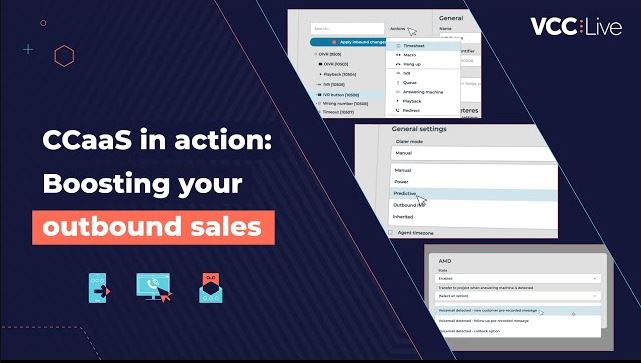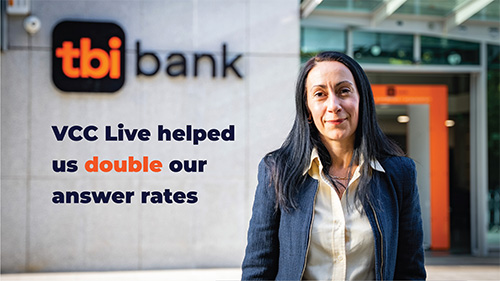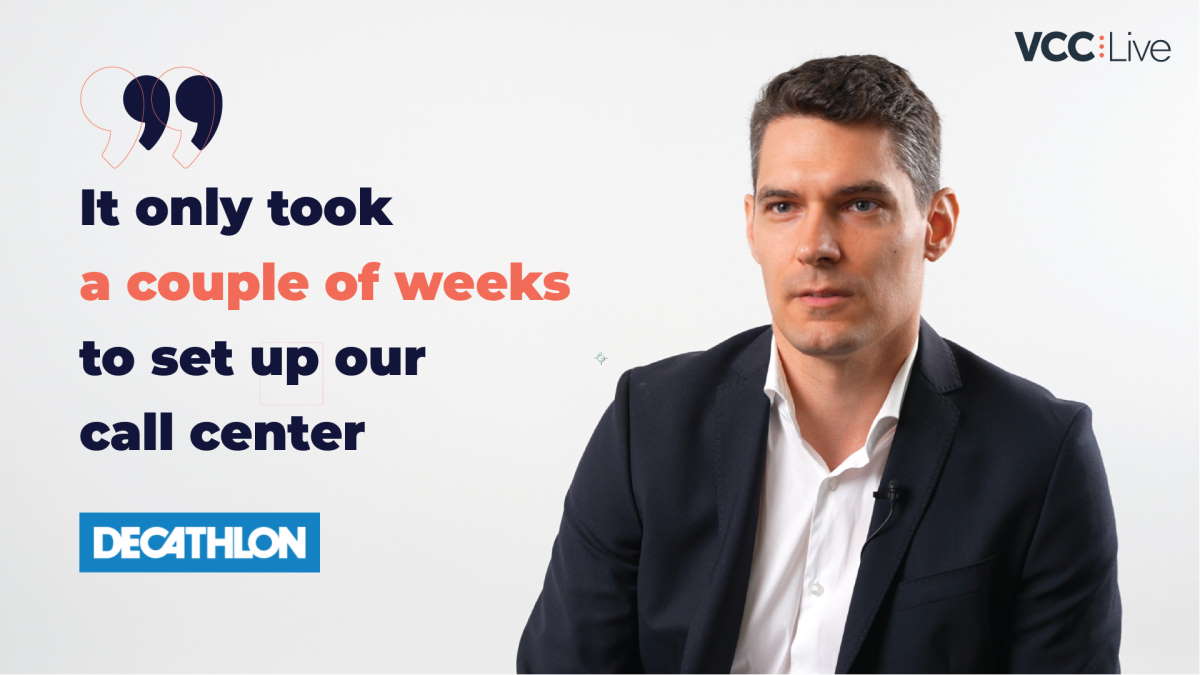Training agents in a contact center may take a lot of time and effort but preparing your agents properly for daily interaction with clients and prospects is critical. After all, a contact center is usually the only department that has regular, direct contact with prospects and customers. As a result, they tend to form their impressions of companies based on interactions with agents.
While simple product knowledge is definitely key, training sessions for agents should also prepare agents for unexpected situations, teach them how to handle difficult queries, complaints, and keep their contacts satisfied. A detailed, lengthy, multi-level training for agents is time-consuming but it’s definitely worth the time and resources, as it’ll greatly improve agent efficiency in the long run.
We collected some of the best practices for making your next contact center agent training more effective, while also keeping your agents excited about their job.
1) Begin with the End Goal in Mind
Before you start hiring, define the goals for the agent training. What level should your agents reach by the end of the training session?
Do they need to know everything about the products and services before taking the first call, or can they learn on the job? What is the minimum quality of service you want to provide your clients with?
Once you define the end goal, you can start working backward. How much time can you allocate to the training? Can you (or another trainer) spend the entire day teaching your trainees?
Be clear on how many days or weeks you can dedicate to the training, how many hours daily, and what resources you need. Consider slower learners, potential sick leaves, or unexpected situations.
2) Communicate Expectations Clearly
When you’re clear on the end goal and the steps that lead toward it, it’s easier to define your expectations clearly.
You can save yourself and your trainees time and stress when everyone knows what to expect from the beginning.
Set clear, measurable goals for your future agents, with milestones along the way. With this, your agents will also know what’s not expected of them yet.
Clear, well-defined expectations are also easier to live up to, which can help with the progression of the training while removing unnecessary pressure. This is especially important for the perfectionist types.
3) Provide and Ask For Feedback Regularly
To make sure that both your and your trainees’ expectations are met and each person is on the same page, don’t wait until the end of the training with a feedback session.
You can dedicate just 5 minutes at the end of each session where you can discuss what works and what doesn’t.
Keep an open mind and create a safe space for your trainees to share. The only way to optimize a process is to become aware of potential flaws first.
What is more, new joiners can bring new insights into your team, which is a great opportunity for growth in a new way.
With regular feedback sessions, you can keep your agents heading in the right direction, and in turn, will trust you more, and feel more motivated and excited about their work.
You can learn how to give well-balanced feedback through different coaching methods.
4) Adjust to Trainees’ Unique Learning Styles
When it comes to learning, there’s no one-size-fits-all method. Each employee has their own personality, preferences, background, and experience.
Contact center training is more efficient if the trainer adjusts to these unique characteristics.
The best idea is to measure your new agents’ learning styles before the training starts. You can get them to write about themselves, ask HR for their insights, hire a business coach, or send them an online test that reveals their preferred learning style.
For example, some employees study better alone, while others thrive in a study group. Some remember ideas more effectively by listening to them, some by looking at them, and some need to experience them or hear examples.
Learning more about different learning styles and the different stages of the learning cycle by David A. Kolb will help you relate to your new agents easier and train them more effectively.
Another personality test that is widely used in the corporate world is the Myers–Briggs Type Indicator that gives you information about how the new employee sees and relates to the world around them.
5) Make It Interactive and Practical
Nobody ever enjoyed passively listening to a presentation for hours on end. Using such a method for training will only force your agents to scroll on their phones.
Actively involving the new agents in the training is way more effective. You can ask for their opinion, have them predict the answer, give them space to ask questions.
Often, trainees feel intimidated by questions, especially in the beginning when they don’t have any knowledge about the topic.
It’s up to the trainer to encourage questions and have agents guess how the system might work. It’s not important if their first answers are wrong.
Not only will trainees remember the material better, but actively participating, having the opportunity to make mistakes, and figuring out solutions by themselves can also raise their self-esteem.
Based on trainees’ learning preferences, you can have them solve tasks alone and in groups (the latter one can also strengthen team cohesion!), draw, answer mock phone calls and emails, and fill out quizzes to evaluate their current level and how much information they managed to retain.
A trainer’s job is not only to share knowledge but also to continuously take notes of and adjust to what works best for trainees.
6) Focus on Soft Skills
Granted, you’re preparing your agents to work with the company’s products and services on a daily basis, so it’s crucial that they know them inside out.
But, soft skills prove to be even more important.
Teaching soft skills tends to be harder and more time-consuming. However, an agent with the right soft skills can serve customers with better results than one who might know your product already but lacks the soft skills.
What soft skills are important for contact center agent training?
The number one skill is communication. Teach your agents to be clear, professional, specific, get to the point fast, while also staying polite and friendly.
Empathy, patience, and active listening are also crucial. While to some extent, these soft skills are already part of our personalities, with the right exercises and continuous practice a good trainer can instill them in trainees.
On top of these soft skills, encourage critical thinking and pattern recognition. Often, these skills improve naturally with interactive training and allowing trainees to make mistakes and figure out the solution themselves.
One session is rarely enough. It takes time for agents to internalize these soft skills, so it’s most efficient to spread the sessions out through multiple days. The trainer needs to lead by example: patience and empathy with the trainees are essential but it pays off.
7) Involve Your Best Agents
Before you let your new agents fly solo, pair them up with some of the best-performing members of the contact center team.
New joiners tend to feel less intimidated by working closely with their future coworkers. It gives them room to ask questions they wouldn’t yet feel comfortable asking from their supervisors, and they can get a direct experience of what their job will look like in the near future.
While not everyone enjoys training newbies, many of your agents will find it exciting to introduce a new member to the team, patronize them and share their own tips and tricks with them.
If none of your agents are comfortable with training, you can simply have newbies sit next to them, or share their screens, and discuss each client interaction in real time.
8) Be Available for the First Calls
Most contact center software solutions offer you the opportunity to listen to your agents’ phone calls in real time, and help them get unstuck by talking to their headset when necessary.
With this method (called call whispering), you can make the final steps of your contact center agent training less stressful.
Even though the new agents are already interacting with real clients, call whispering can act as a crutch, putting less pressure on the agents and allowing supervisors to save calls that are not heading in the right direction.
Dedicated resources for call center agent training
If you’re looking for some ready-made resources that you can share with your agents, head over to VCC Live’s library of free call center courses.
It includes a selection of hand-picked training materials in a digestible, video format that will help your team achieve a lot more. Our experts will help you improve in many key areas, including choosing dialers for outbound campaigns, tracking key KPIs for handling inbound calls, preparing agents for remote work, and a lot more.















